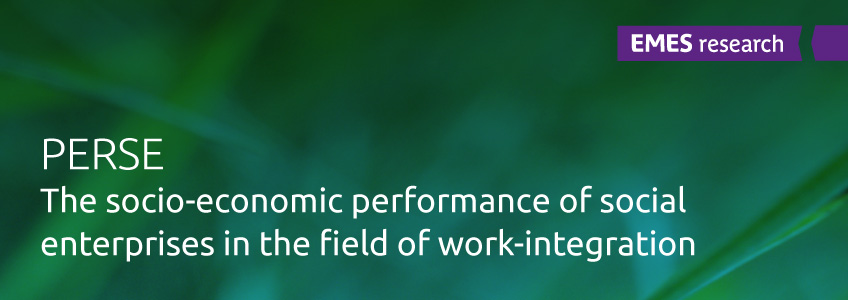This four-year project ended at the end of 2004. In addition to the production of the several reports, a strong effort regarding the dissemination of the project results was made in 2004, both in Western and Eastern European countries. As far as the latter are concerned, 2nd European Social Economy Conference in the Central and Eastern Europe on “Social Entrepreneurship & Economic Efficiency” in Krakow in October 2004, provided the coordinators with a unique opportunity to broadcast these results. Regarding international dissemination, a panel about the PERSE project was included in the program of the ISTR–EMES international conference in Paris, in spring 2005.
Overview
The main objective of the present project was to further develop this theory of social enterprise through a comparative analysis of 160 social enterprises in Europe. In order to do so, we chose an empirical field which is emblematic of the dynamics of social enterprises, namely ‘work integration social enterprises’ (WISEs), as it is a major sphere of activity of social enterprises in Europe. The main goal of work integration social enterprises is to help poorly qualified unemployed people who are at risk of permanent exclusion from the labour market. These enterprises integrate them back into work and society in general through productive acivity. Beside work integration, social enterprises are also active in the spheres of the rapidly developing sector of personal and social services; these two areas sometimes overlap since, in some cases, work integration social enterprises produce this latter type of services.
If the 160 WISEs of the PERSE sample are active in a wide spectrum of activities, an important subset of WISEs provide public goods, such as maintenance of public spaces, or quasi-public goods (childcare, elderly care, second hand shops for needy people, delivery of meals, shopping, transport services for people with reduced mobility….) and valorise this kind of production in itself, and not only as a means to achieve their integration goal. In this perspective, the public mission of these WISEs is twofold: integration of poorly qualified unemployed people, who are at risk of permanent exclusion from the labour market, and production of a (quasi)-public good.
Forty-four different types of WISES have been identified. They address, through various modes of integration, the problems of long-term unemployment and occupational inactivity of disadvantaged people.




